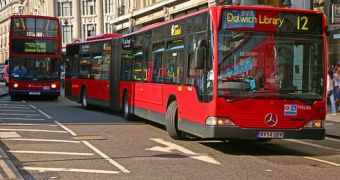London authorities are determined to do everything in their power to green up the name of their city, considered one of the biggest polluters in Europe.
Since most of the harmful GHG emissions are generated by car traffic, a magic "pollution glue" improving air quality seems to be the perfect solution, Clean Technica informs.
The new calcium magnesium acetate-based substance will be applied on the streets of London, in 15 different areas, as a part of a new trial.
The main goal is to decrease the number of hazardous particles lowering air quality in the city and officials from Transport for London seem very confident in the result of this project.
The “pollution glue” also known as “‘dust suppressants” will be spread by a vehicle equipped with a sprinkler system and is expected to collect small toxic particles from the air and stick them on the road, preventing them from reaching the atmosphere.
However, this project is not entirely new, being considered an extension of a previous strategy developed last year, in two other locations. Judging by the results obtained at that point in time, the glue method could decrease air pollution by up to 10%.
Even though it might look like a small step, it still counts as an effective method of liberating London from a significant amount of small toxic particles emitted by polluting cars.
Even though officials have put all their hopes in this new project, other authorized voices say that this step could be seen only as a way of dealing with the effects of the phenomenon, being unable to annihilate the cause.
“Suppressants may achieve compliance in localised areas near monitoring stations and avoid further action from the European Commission, but they address the symptoms and not the causes of the problem,” explains Alan Andrews from Client Earth group.
Even under these circumstances, the contribution of “dust suppressants” is still appreciated and welcomed, especially since London's alarming level of small dangerous particles, PM10, currently exceeds the legal limit established by the EU.
Another method of increasing air quality is also being taken into consideration by London authorities, who have decided that large vehicles, like lorries, should offset their considerable carbon footprint by paying a tax.
Since the method has recorded beneficial effects so far, the regulation will be expanded to minibuses and big vans at the beginning of next year.

 14 DAY TRIAL //
14 DAY TRIAL //